Sharing is caring!
Herbs to avoid during pregnancy—it’s one of those things you don’t think about… until you’re pregnant. Suddenly, your favourite herbal tea feels suspicious, and you’re side-eyeing every “relaxing” blend in your cupboard. I remember that moment too—holding a mug of chamomile and wondering, wait… is this even safe?
The truth is, while many herbs are beautifully supportive during pregnancy, some can do more harm than good.
With the shift towards more ‘natural’ pregnancy and childbirth, maybe you thought of using herbs to enhance your general health and well-being.
This post is here to help you feel more confident about what to skip, why it matters, and how to choose safer sips for you and your baby.
The feeling of having the responsibility of a growing miracle inside of you somewhat prompts you to look after yourself a little bit better. I know it did in my case.
Perhaps a healthier diet, quitting bad habits or taking up some form of exercise to help you and growing baby.
What Can Herbs Help With During Pregnancy?
Herbs have been used for centuries by women all over the world during pregnancy, childbirth and in post-natal stages.
From improving the health and functioning of your organs and systems to providing your body with extra nutrients, herbs have been used widely with positive results and virtually zero harmful side effects when used correctly.
They have been used in cases such as:
- Anemia
- Anxiety
- Constipation
- Cramps
- Fatigue
- Headaches
- Heartburn
- Hemorrhoids
- High Blood Pressure
- Indigestion
- Insomnia
- Nausea/Morning Sickness
- Moods/Emotional Swings
- Skin Issues/Itchy Skin
- Stretch Marks
- Sciatica/Backaches
- Urinary Incontinence
- Urinary Tract Infections (UTIs)
- Vaginal Infections
- Pro-longed Childbirth
- Post-natal Issues
Herbs To Avoid During Pregnancy
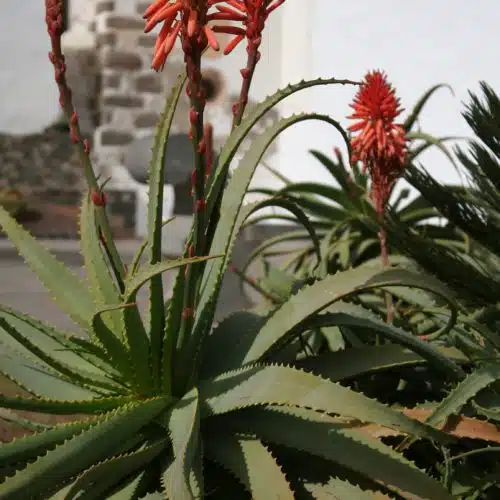
Aloe (Aloe vera)
Very strong laxative compounds if taken internally and can be passed onto mother's milk, so nursing mothers should avoid internal use.
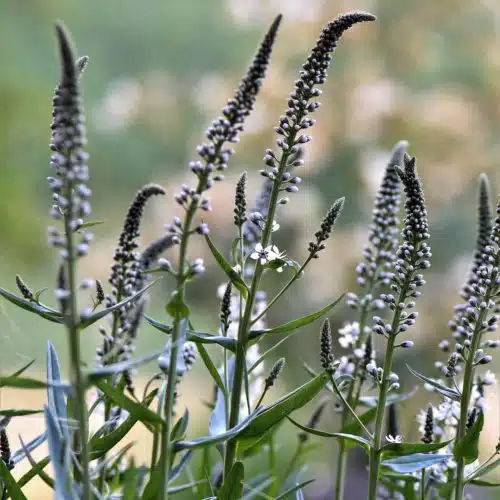
Black Cohosh (Cimicfuga racemosa)
Is a hormone and uterine stimulant which is mostly used in late pregnancies to help relax the cervix and uterine muscles. Could cause miscarriage in early pregnancy.
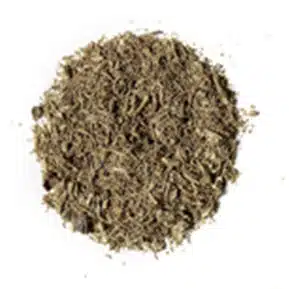
Blue Cohosh (Caulophyllum thalictroides)
Is a strong uterine stimulant that can cause miscarriage if used in early pregnancy. Could cause birth defects in baby.
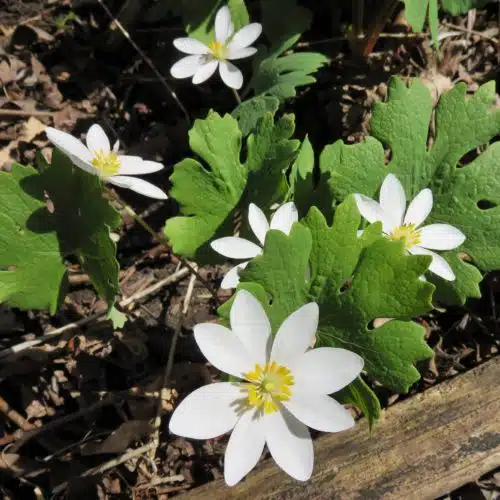
Bloodroot (Sanguinaria canadensis)
Large doses and long term use can cause toxicity. Side effects include nausea, vomiting, drowsiness, skin irritations.
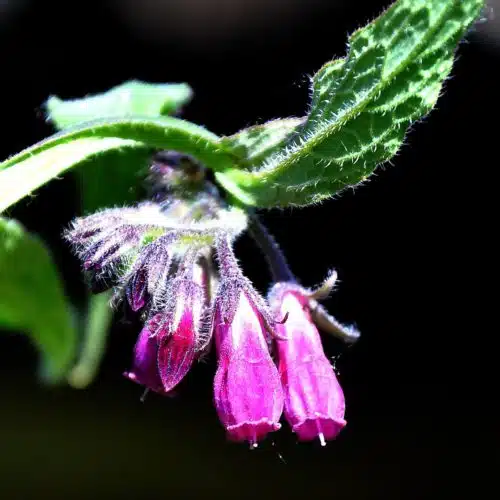
Comfrey (Symphytum officinale)
Contains 'pyrrolizidine alkaloids' (PAs), a strong chemical that can cause liver problems in mother and baby. It's also considered a strong uterine stimulant and may be carcinogenic.
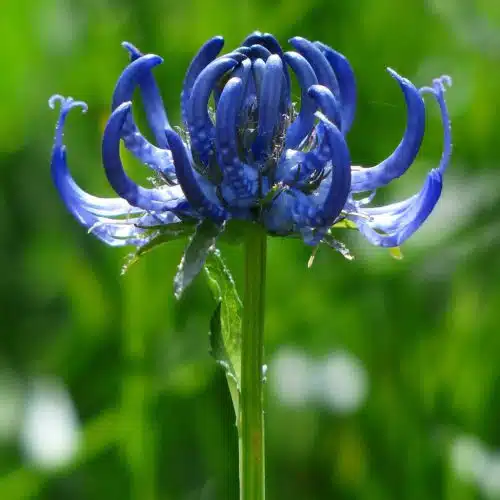
Devil's Claw (Harpagophytum procumbens)
Most common side effect is diarrhoea. Others include nausea, stomach pains, vomiting, headaches, changes in menstrual periods.
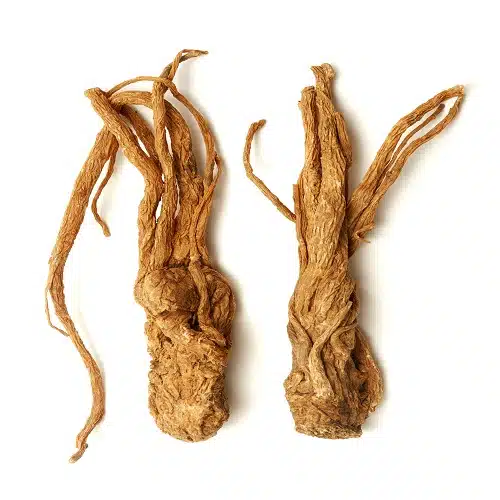
Dong Quai (Angelica sinensis)
Not recommended for those who are pregnant in their first trimester as it is a uterine stimulant and could increase the risk of miscarriage.
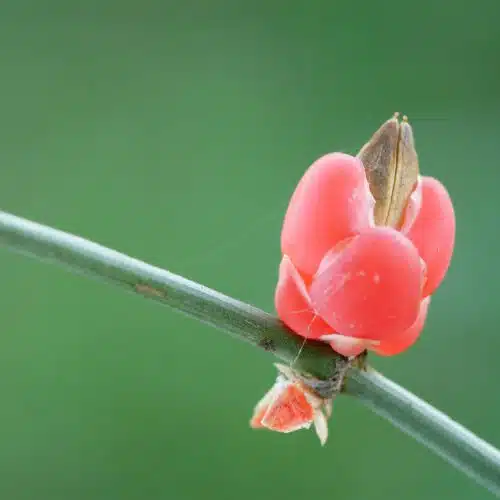
Ephedra a.k.a ma huang (Ephedra vulgaris)
Dubbed the "herbal ecstasy" and banned in the USA since 2004, it's considered a 'teratogen' which is a substance that can cause birth defects. Contains the chemical 'ephedrine' which in high doses can cause headaches, nervousness and increased heart rate.
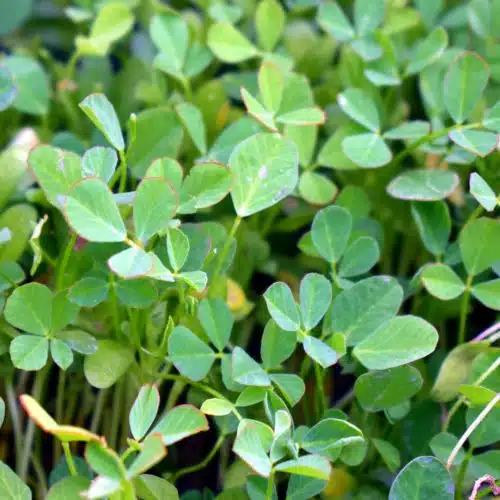
Fenugreek (Trigonella foenum-graecum)
Large doses can stimulate uterine contractions, miscarriages or premature labour. Has been used in the past to induce labour and can cause newborn to have a 'maple syrup' smell which could be confused for the genetic disorder 'Maple Syrup Urine Disease'.
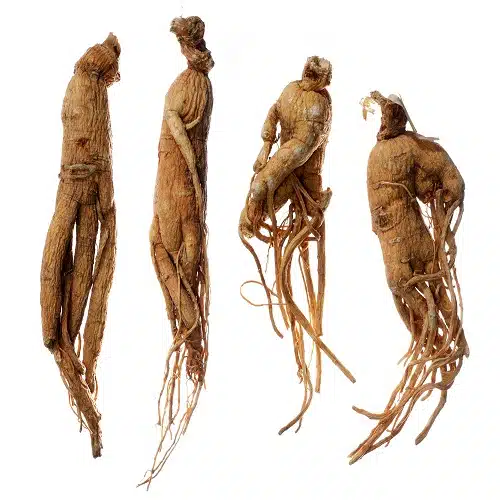
Ginseng (Panax quinquefolium)
Is considered a 'teratogen' which means it can cause birth defects and abnormalities in baby. High doses can cause insomnia, headaches, diarrhoea and can lead to uterine bleeding.
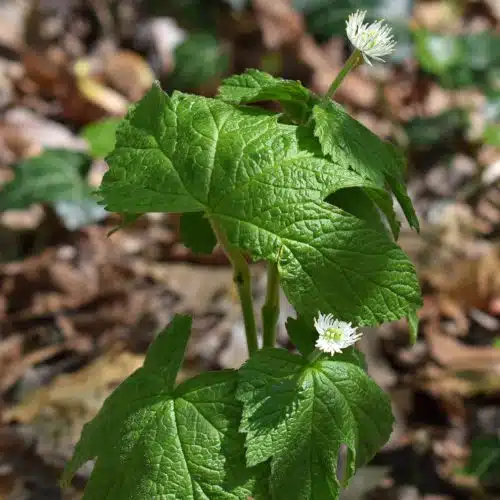
Goldenseal (Hydrastis canadensis)
Contains the chemical 'berberine' which can cause or worsen jaundice in newborns and may lead to 'Kernicterus' (brain damage). Is also too powerful an antibiotic for the developing fetus.
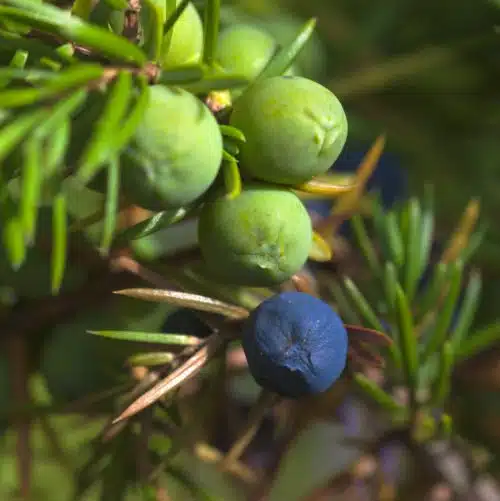
Juniper Berry (Juniperis communis)
Is a strong uterine stimulant which could interfere with fertility or could cause miscarriage.
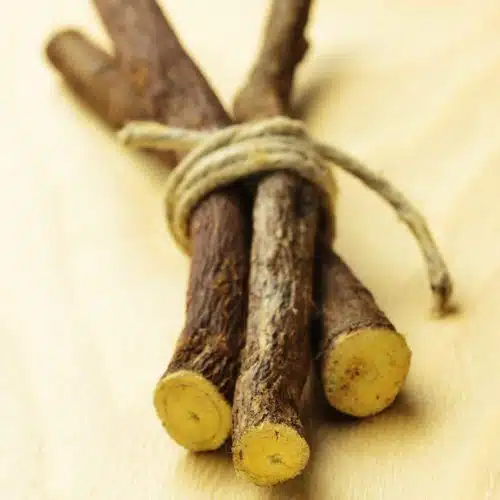
Liquorice Root (Glycyrrhiza glabra)
High doses can cause fluid retention, elevated blood pressure and potassium loss. Eating large amounts of black liquorice sweets when pregnant could affect child's IQ, memory and increased ADHD.

Mandrake (Podophyllum peltatum)
Considered highly toxic and poisonous, the roots contains 'hyoscine' a powerful alkaloid that can cause hallucinogenic and hypnotic effects. It is associated with superstitious practices and rituals as people in the past believed it to have magical powers.
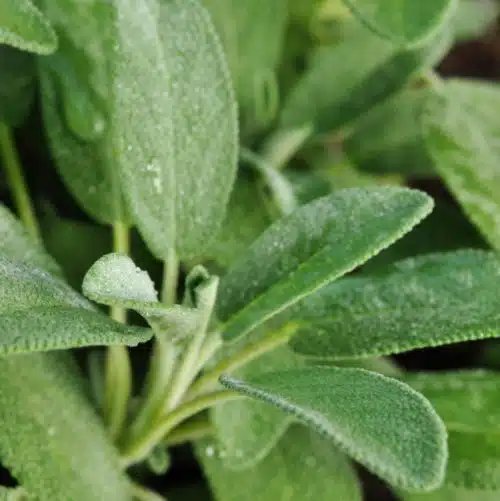
Sage (Salvia officinalis)
Considered a 'teratogen' meaning it can cause birth defects. Contains a chemical 'thujone' which in large doses can be poisonous, trigger seizures and damage the nervous system. Is a uterine stimulant which could cause miscarriages.
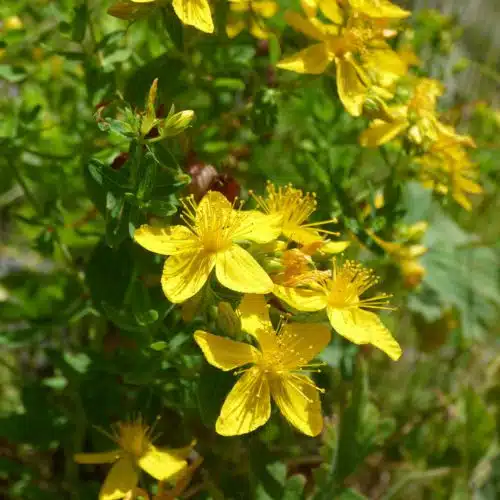
St. John's Wort (Hypericum perforatum)
Generally used to help with depression and the menopause, large doses can cause skin sensitivity, insomnia and bring on anxiety. It also interacts with many medications such as birth control pills, warfarin and chemotherapy drugs.
The use of herbs and spices as part of a healthy diet is commonplace for pregnant women all over the world, as these are generally taken in small amounts.
However, the use of herbs for medicinal purposes during pregnancy can be more potent and concentrated than in foods and excessive amounts could be harmful to you and growing baby.
Pregnancy is not really a good time to experiment with generally contra-indicated herbs!
Many botanical medicines contain potent pharmacological substances that can trigger a miscarriage, can stimulate the uterus or cause foetal abnormalities or birth defects.
Also, many physiological and metabolic changes experienced during pregnancy may influence the action of herbs within the body.
It is highly recommended to consult with a qualified herbalist if you decide to start using herbs during pregnancy.
Infusing the Key Takeaways
The use of herbs during pregnancy offers many benefits, from alleviating common discomforts to supporting overall health. However, it’s crucial to remember that while herbs can be natural, they are not always risk-free.
The body undergoes significant physiological changes during pregnancy, and certain herbs can have potent effects that may not be suitable for every stage of pregnancy or every individual.
Many herbs, if used in excess or incorrectly, can potentially cause harm, ranging from mild side effects like nausea to more severe risks, such as miscarriage or birth defects.
Therefore, it is essential to approach herbal remedies with caution, especially when it comes to the first trimester or any high-risk pregnancies.
Consulting with a trained herbalist or your healthcare provider before using any herbal treatments is a critical step in ensuring the safety of both you and your baby. Being informed about which herbs to avoid and which to use safely is key to making wise decisions during this important time.
By focusing on the herbs that are well-established as safe and beneficial, you can incorporate natural remedies into your pregnancy care plan with confidence, knowing that you’re supporting both your health and your baby’s development.
Have you tried using herbs whilst pregnant? Which ones did you use and did it help? Were you aware of the side effects of certain herbs whilst pregnant? I’d love to hear your stories and experiences.
Thanks for popping by!
Peace & blessings
Teresa
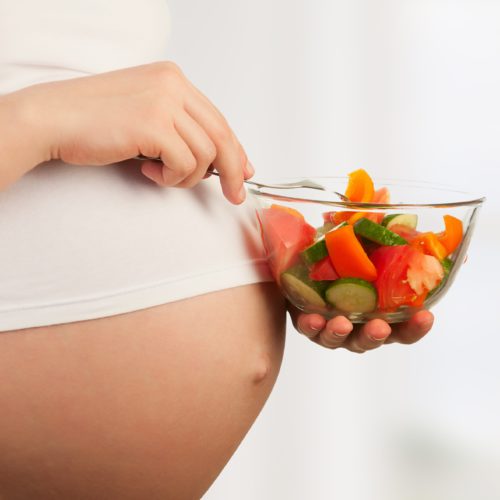

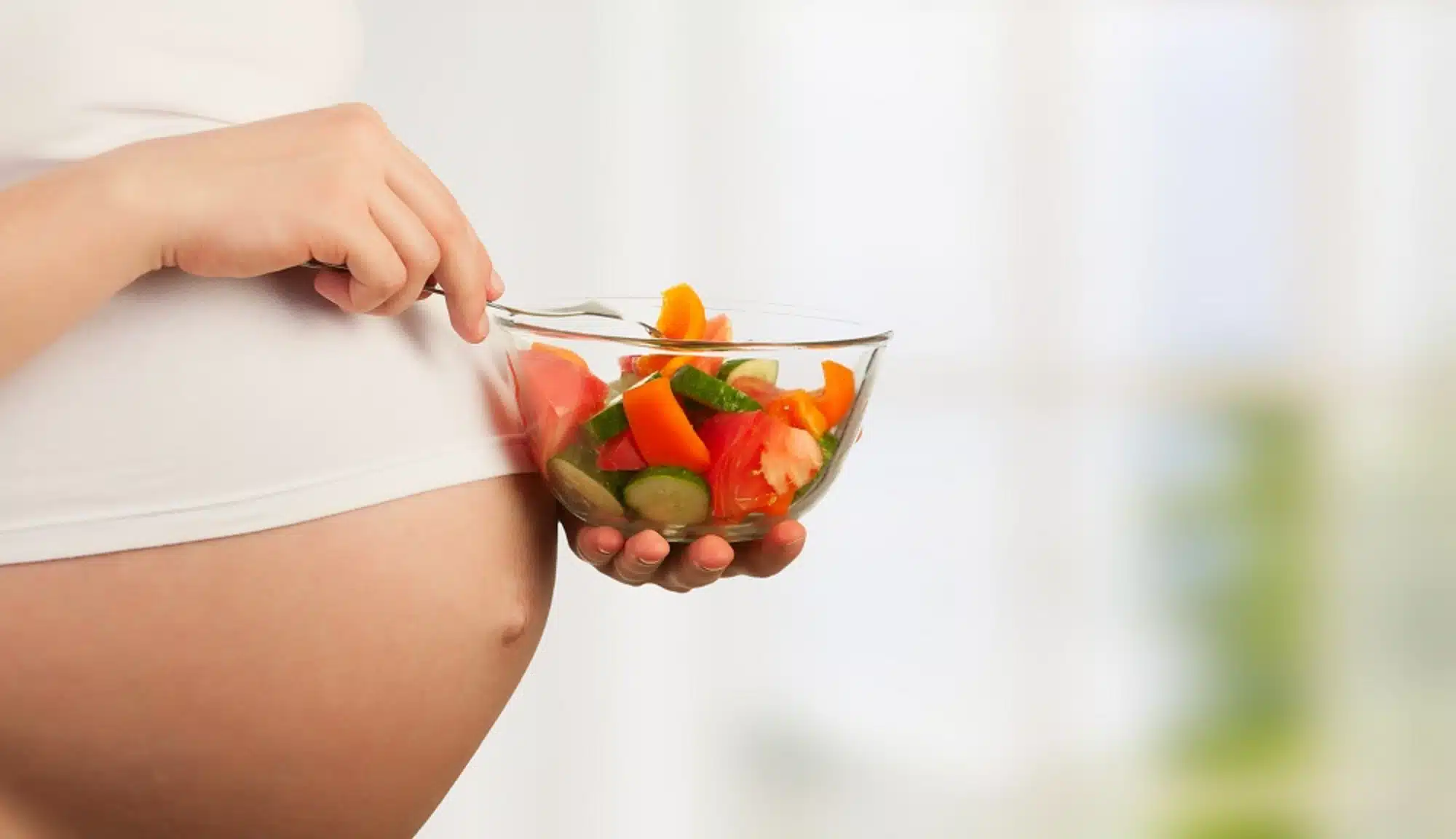

Hello Teresa; this is very useful. Herb is good but there is a time and a season for everything. The season of pregnancy is not one to joke around, pregnant women need to understand that even when they might not feel weak or any way insufficient.
Their body is in a state of production where much care is needed. The use of herb should during pregnancy is prohibited. Unless taken at the time of labour when Thyme is ingested to prevent Caesarian birth.
DorcasW
Hi DorcasW
Thanks for your comments.
As the post mentions, herbs have been used for centuries worldwide by pregnant women during pregnancy, childbirth and post labour with positive results. The risk is only apparent when the dosage is used incorrectly. Or if you are a complete novice with herbs, then starting to use them whilst pregnant may be risky unless recommended by a qualified herbalist.
The post highlights certain contra-indicated herbs during pregnancy, but some herbs, such as black cohosh and blue cohosh have both been used in the past during late pregnancies (the last weeks of pregnancy). This is to help ease labour pains and prepare the uterus for labour to ensure an easy delivery.
Have you had success with using thyme during labour?
There are certain recommended herbs to use when pregnant and I hope to highlight this in a future post.
Take care and peace be with you
Teresa
OOOHH!! That’s great idea to know different between good herbs and bad herbs for your pregnancy times. The descrpition on each herbs are very helpful to keep women and babies very healthy.You did great job doing the research on herbs and how to help pregnant women and unborn babies healthy and strong. Go for it!!!!
Hey Carolyn
Thanks for your positive vibes! I will be writing a future post on what best recommended herbs to use when pregnant, so stay tuned!
Peace be with you
Teresa
Thanks for this detailed and informative post, it is understanding that herbs are natural. But unlike modern medicines, herbs and herbal preparations do not go through extensive tests. and as a result of this, there is no scientific research to prove the safety of these herbal tea most times, making its use a risky proposition during pregnancy. It’s a good thing you have passed this message across many, will also play my path in sharing it amongst friends and family.
Hi SeunJeremiah
You are right in saying this. Its so unfortunate that the approach to testing herbal medicines and remedies hasn’t been as thorough and rigorous as the testing that is seen in the mainstream pharmaceutical industries. Money plays a key part here.
However, just because the testing of herbal medicines hasn’t been so accredited, this doesn’t eliminate the evidence of its effectiveness – herbal medicines has the longest running human trails. It has taken centuries of observation and gathering of herbal knowledge – don’t forget that modern medicine has its connection with plants with modern drugs derived originally from plants such as:
– aspirin from Willow Bark
– digoxin from Foxglove
– morphine from Opium Poppy
– insulin from Elecampane
If you are unsure about the safety of any herb – then don’t use it or administer it yourself as its best to consult with a qualified herbalist.
Thanks for visiting and peace be with you
Teresa
Great article about teas for pregnant women and especially what teas to avoid when pregnant. People seem to have some sort of myth that natural would be automatically harmless and safe and it is not true. I like to have lots of herbs and herbal stuff in my diet an would not mind to suggest them for my wife while pregnant. But you learn always something new, this article opened my eyes to some ingredients like ginseng. Thanks for sharing this valuable article!
Hi Jessetoikkanen
You’re most welcome. Really happy you’ve learnt something from the post.
Can I ask what kind of herbs do you use in your diet?
Take care and have a great week ahead. Peace be with you
Teresa
Let me start in agreement that a day is definitely more fulfilled when you learn something new or different. I actually like herbs and I would not mind suggesting them for a pregnant woman, little did I know that not all of them are good all the time. I could never have thought that ginseng can cause abnormalities for the child.. Thanks.
Hi Grea8J
Glad you learnt something new from the post – as the saying goes “you’re never too old to learn something new.”
Take care and peace be with you
Teresa
I love this your article as it highlights the herbs to avoid during pregnancy in order for mums to achieve optimum health and safety for themselves and their babies.
I agree with you that in pregnancy, childbirth and in post-natal stages, herbs has been used for centuries.
I was really surprised that Aloe Vera was the first herb to avoid on your list as the mother needs to avoid ingesting this herb because it has strong laxative compounds that will get into the milk for the baby.
Thank you also for your concluding mantra: “Natural doesn’t mean completely safe or harmless. When in doubt… go without”.
I will share this lovely post on our community family group.
Hi Chris
Yes, Aloe is always the herb that surprises people but it’s safe to use externally when pregnant.
Thanks for reading and positive comments.
Peace be with you
Teresa
Hi Teresa. It is a very informative post. During pregnancy I did not experience anything new. But I changed my way of life, living healthier. I had a book for future moms and I read what the body needs while you’re pregnant. I only ate what they indicated in the book, although sometimes I didn’t like what I eat (ex.: eggs or dairy). After I gave birth I drank cumin tea for the lacquer.
All the best to you
Carmen
Hi Carmen
It’s funny what being pregnant can do to oneself. Before I got pregnant, I ate a relatively healthy diet and exercised regularly with HIIT workouts. When I was pregnant, I increased my healthy eating habits, toned down on the HIIT workouts and did more gentler forms of exercise and read tons of articles and books about pregnancy too.
The beauty of pregnancy changes you mentally, physically, physiologically and emotionally and all for the better – that’s why I believe it makes you a warrioress.
Thanks for popping by and peace be with you
Teresa
Like my mum will always say, not all that is natural is Gil for human health. This article came at the right time, my girlfriend is pregnant and before she did, she’s very used to the use of herbs and other natural products, this will be of great help her and our baby. I’ll share it to her so she’ll read. There are some herbs that are beneficial to pregnant women but before use, enough research should be done so as to know its good and bad side.
This article is really informative and educative, I’ll share it to some other platforms so they’ll benefit from it. I enjoyed reading through, thanks for sharing.
Hi Jones
Mums always know best, don’t you agree?
Congratulations to you and your girlfriend and hope the pregnancy is treating her well! How far into the pregnancy is she? Does she have that ‘pregnancy glow?’
So happy you found the post helpful and spreading the word. I will be writing a follow up to this post which will be about the recommended herbs during pregnancy, so hope you will stay tuned!
Peace be with you
Teresa
When one thinks of herbs one thinks healthy so I wouldn’t have thought there would be any to avoid during pregnancy.
Aloe Vera for example is one that I thought was totally safe. Cohosh is another I wouldn’t have given another thought to. In fact Ginseng is the only one on your list that I would be a bit wary of.
I have really learned something new today, and natural doesn’t necessarily mean safe. Are there any that are highly beneficial for pregnancy?
Hi Michel
Great question – there are many herbs that are recommended during pregnancy such as chamomile, nettle, red raspberry leaf and lavender. This will be the question I will be answering in my next post, so stay tuned!
Aloe is safe to use externally on the skin during pregnancy if needed and just so you know, black cohosh and blue cohosh have both been used in the past during late pregnancies (the last weeks of pregnancy) This is to help ease labour pains and prepare the uterus for labour to ensure an easy delivery.
I’m really happy you have found the post helpful and learnt something new.
Take care and have a blessed week. Peace be with
Teresa
Excellent article you have up here and I can only be thankful to you for sharing this information to us all. Being a tea lover, my wife takes medicinal teas constantly as she is getting to her birth period. One thing that baffles me is the inclusion of aloe here and she always include it in her tea. Please, how detrimental could it have been if it has been taken for longer than a month? Though she will stop the intake henceforth bit I just wanna know what the effects could have been
Hi Rodarrick
Firstly, congratulations to you both! It’s great to hear your wife is a fan of medicinal teas.
Secondly, Aloe is classed as a herbal stimulant laxative and it’s very effective in its actions. The leaf comes in 2 parts:
– the gel (the part that’s generally used externally for the skin)
– the leaf juice – a.k.a latex or bitters – a dried yellow sap taken from the leaf rind (usually used internally as a laxative)
It isn’t recommended to take aloe for more than 14 days as it can cause severe cramping or diarrhoea and can result in the depletion of vital electrolytes such as potassium.
It’s hard to comment what the effects will be as it depends on where she bought it, how much she is taking and how long she’s been taking it.
Hope this helps and thanks for your positive comments. I wish you and your wife well in your journey to parenthood.
Peace be with you
Teresa
My wife is 8 month pregnant, it’s sad that I just saw this post now. Still, I have to say that this is a very well written article and indeed really helpful and informative! Will go ahead and share this one with my friends. For sure they will benefit from this. All the best! Thank you.
Hi AJ
Thanks for your positive comments and congratulations to you and your wife!
Don’t be sad about the post – it’s just a precaution. Herbs can still be used in small doses when cooking and there are certain herbs recommended during pregnancy such as chamomile and nettle. I will be writing a more in depth post about this soon so stay tuned!
Take care and peace be with you
Teresa
Hi Teresa,
Great article, I really loved the reading!
My best friend is pregnant, and she often comes to my house for dinner on the weekend, and she told me that she drinks lemon juice with ginger every morning. Wow, I am going to share this article with her right now, hoping she’ll stop in time.
I do have a question though; I use a lot of ginger and fenugreek in my dishes. Do these herbs have the same bad impact on pregnancy when cooked?
Thank you for this excellent post!
Hi Daniella
As I mentioned in the post, the use of herbs and spices for pregnant women is common practice as they are generally in small amounts and can be used as part of a healthy diet. Certain herbs are only dangerous if taken incorrectly such as in large doses or over long periods of time.
Ginger is actually recommended for pregnant women as it can ease morning sickness, stimulate circulation and can help with flatulence – symptoms that can be associated with pregnancy. Drinking one cup of lemon and ginger tea per day wouldn’t do any harm – only if taken in excess.
Hope that helps and congratulations to your friend – how many months is she?
Peace be with you
Teresa
This was an interesting article you did here, I didn´t know much about what types of herbs to avoid during pregnancy but at least now I know something about it. Good job right there. I also liked how you went onto each herb and explain a bit on each of them or give out some extra information about the herb. Bye.
Hi Barbara
Thanks for your comments and glad you enjoyed the read and learnt something new in the process. A day is more fulfilled when you learn something new or different, don’t you agree?
Have a great week ahead and peace be with you
Teresa
My pregnant sister thinks that it is currently best for her to turn to herbs when she is sick but I have told her that some herbs might not be good for her condition right now but she’s not listening. I hope that when I share this with her, she’ll see reasons with me to see a doctor instead of going all self medicated. Thank you for sharing.
Hi John
Starting to use herbs when pregnant can be risky especially if you are an absolute beginner. However, if your sister is wanting to go down the herbal route then its ideal if she sees a trained herbalist as certain herbs can help with specific symptoms.
Thanks for visiting and peace be with you
Teresa
Herbs are really strong and even though they are very good. I understand why this herbs are not suitable when a person is pregnant now. You must’ve done a great deal of research on this to put up this herbs. I use some of this herbs though like ginseng and aleo. Nice post here worth sharing.
Hi Henderson
Thanks for your positive vibes and great to know you already take some herbs. Can I ask how you take them?
Peace be with you
Teresa
Hi Teresa;
I found it very interesting that so many of the herbs you listed could cause miscarriage. I’ve read about how in the old days some “healers” used herbs intentionally to help women spontaneously abort if they didn’t want a child. With so many of these herbs having this potential I can see how it wouldn’t be difficult to achieve this. But I imagine it was also very dangerous.
This also applies to pets when it comes to plants. When our son got a new kitten we got rid of several plants because they were potentially toxic.
What you say is so true, just because something is natural, doesn’t mean it’s safe.
Great post! 🙂
Hi Stella
Yes there are many herbs that are considered ‘abortifacient‘ which means they can cause early expulsion of an unborn child and should avoided when pregnant.
Other herbs are considered ‘emmenagogues‘ which means they can stimulate menstrual flow even when it isn’t due and herbs that fall into this category are also considered abortifacient. These should be avoided too when pregnant.
That’s interesting to know you had to rid of a few plants when your son got a kitten. Are you able to remember what plants they were?
Thanks for reading and peace be with you
Teresa
Hey Theresa,
Thanks for taking time to write this great article. It’s really helpful and useful for research. I’m sure you’ve done some research to come up with the type of herbs to avoid during pregnancy. It’s make life easier for someone looking for an article like this. Also, good to see the botanical names of those herbs.
Amazing website you’ve got there – everything is well laid out.
Thanks for sharing.
Hi there Aye2019
Glad you found the post useful and thanks for your positive vibes.
Peace be with you
Teresa
This is a really helpful and educative article I must confess. I and a friend of mine once engaged in a discussion about herbs and there functions and benefits to pregnant ladies . this is why I have engaged in this research. All the list of herbs listed here are amazing and can be productive. I have a pregnant sister and these post would be really helpful to assist her on which herb not to use while she is still pregnant.
Hi Willy
I personally believe that all plants have the power to heal the body in some way…it’s just a case of knowing what to use, when to use, how much to use and how long to use!
Congratulations to your sister’s pregnancy and I hope she finds the post useful too.
Take care, have a blessed weekend and peace be with you.
Teresa
This is very insightful! I never realized how many herbs that I should avoid during pregnancy. I will be more aware of this for my next pregnancy as me and my husband are trying for baby number 2! Thank you so much for sharing this information. I think most of us forget what natural really means.
Hi Jessica
I’m really glad you found the post useful in making you more aware of what herbs to best avoid in pregnancy.
Many of the herbs listed are harmful if taken in large doses and over long periods. Other herbs, such as Dong Quai, are contraindicated in the West but it is widely used in Traditional Chinese Medicine and is prescribed as a blood tonic for pregnant women in China.
It’s always best to stay informed and use only herbs that are prescribed by a qualified herbalist.
Stay tuned for which herbs are best to use during pregnancy!
I wish you well in trying for baby #2 and peace be with you
Teresa